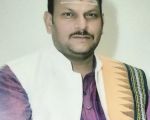Kapil Sibal’s attendance at the London event was highly scrutinized. As a prominent Congress leader and former Union minister, his presence lent credibility to Shuja’s claims, despite the Congress party’s official stance distancing itself from the event. Sibal clarified that he attended at the personal invitation of journalist Ashish Ray, not as a Congress representative, and insisted the allegations warranted investigation. Critics, including the BJP, labeled it a “Congress-sponsored conspiracy” to defame Indian democracy. Union Minister Ravi Shankar Prasad questioned Sibal’s role, asking, “In what capacity was he present?” The Election Commission of India (ECI) dismissed Shuja’s claims as baseless, noting that EVMs are standalone machines with no external connectivity, making hacking implausible. The ECI even considered legal action against Shuja for spreading misinformation.

Adding to the intrigue, Avi Dandiya, a YouTuber known for his anti-Modi rhetoric, interviewed Shuja, presenting his claims as credible. Dandiya’s history of spreading false narratives came under scrutiny after the Pulwama attack in February 2019, when he circulated a fake audio clip implicating BJP leaders in a conspiracy. According to a report by The Hindu on March 4, 2019, Delhi Police filed an FIR against him under Sections 465 and 469 of the Indian Penal Code for forgery and spreading false information. Despite this, in September 2023, the Congress appointed Dandiya as the social media head of the Indian Overseas Congress (IOC), a move that fueled speculation about the party’s intentions. Critics argue this decision reflects Congress’s willingness to align with individuals known for divisive propaganda, potentially to amplify anti-government narratives abroad.
The question remains: Was Shuja’s press conference a Congress-orchestrated ploy to cast doubt on EVMs and India’s electoral integrity? Several factors suggest this possibility. Shuja’s claims lacked evidence, and his identity as a former employee of the Electronic Corporation of India Limited (ECIL) was unverified. The timing of the event, just months before the 2019 general elections, aligned with Congress’s broader narrative questioning EVM reliability after its 2014 defeat. The presence of Sibal, a seasoned Congress strategist, and the subsequent elevation of Dandiya within the IOC, indicate a pattern of leveraging controversial figures to challenge the ruling government’s legitimacy.
However, there are counterarguments. Congress’s official dissociation from Shuja’s claims and Sibal’s assertion of attending in a personal capacity suggest the party may not have directly engineered the event. Shuja’s disappearance after the press conference adds ambiguity, as does the lack of concrete evidence linking Congress to a broader conspiracy. Dandiya’s appointment to the IOC could be seen as a pragmatic move to harness his social media influence, rather than an endorsement of his past actions.
The EVM controversy highlights the delicate balance between free speech and electoral integrity in India’s democracy. While skepticism about electoral processes is legitimate, unsubstantiated allegations risk eroding public trust. The involvement of figures like Sibal and Dandiya raises valid concerns about political motives and foreign interference, but without definitive proof, the question of whether Shuja was a Congress ‘plant’ remains speculative. What is clear is that such episodes underscore the need for robust safeguards to protect India’s democratic institutions from both domestic and external manipulation.





